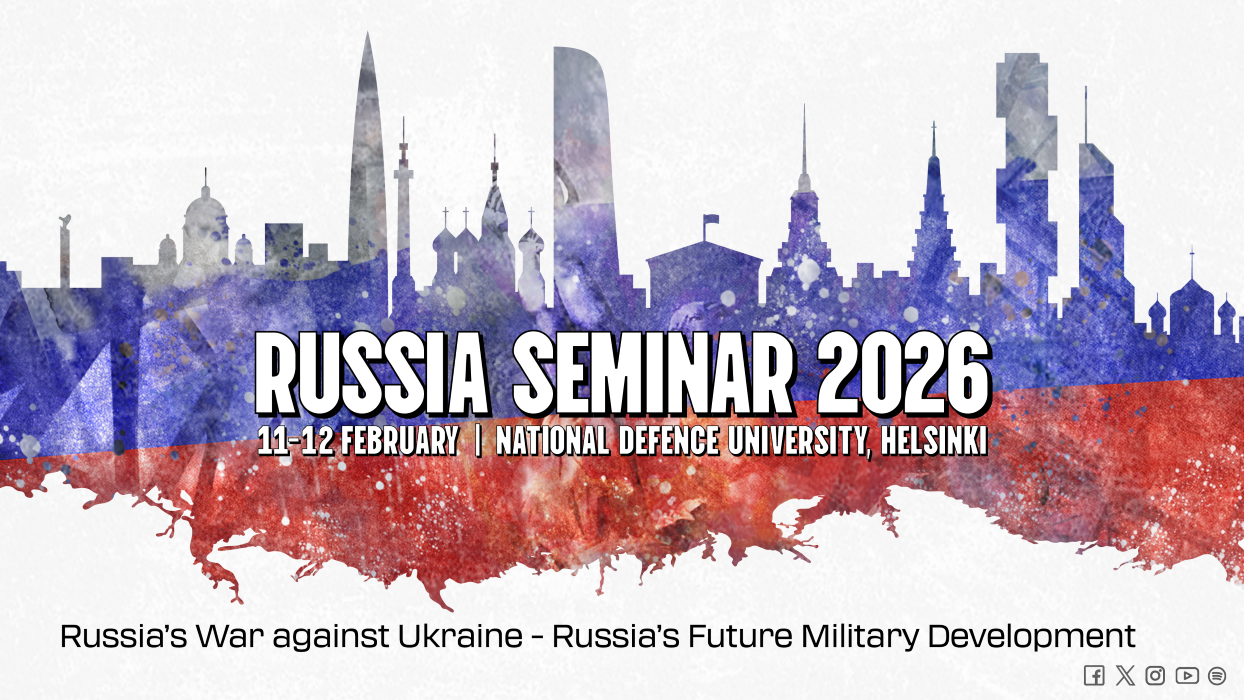
Programme
Click here to open the seminar programme: Russia Seminar 2026 Programme.pdf
The seminar abstracts are available at the Doria Publication Archive.
The seminar will be streamed live for the online audience, and recordings will be available on the National Defence University’s Youtube channel.